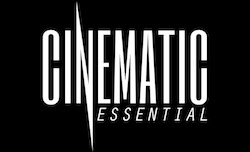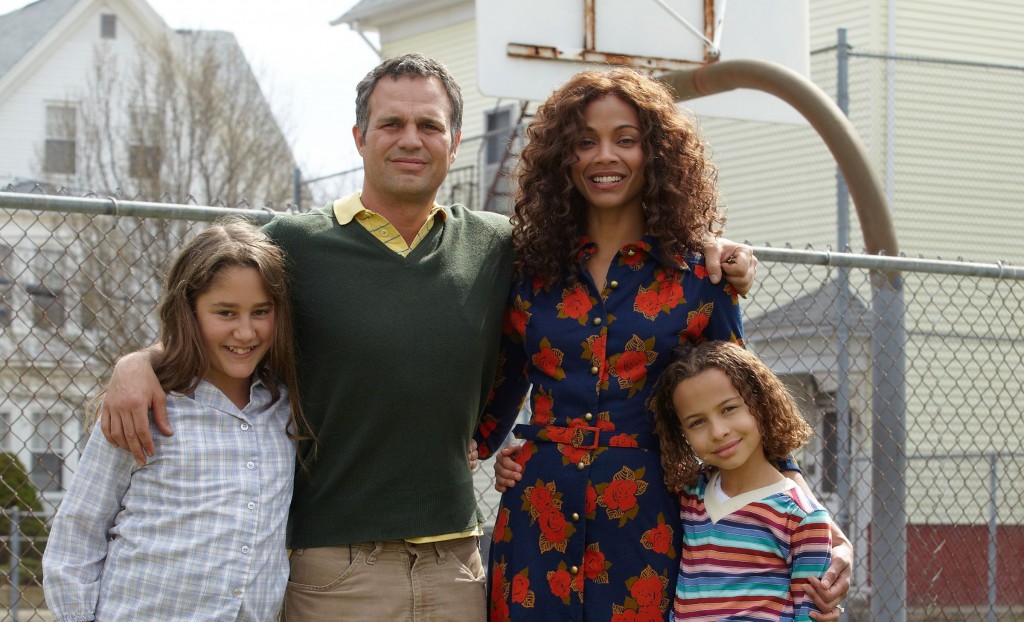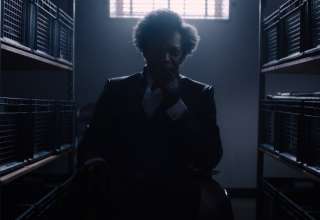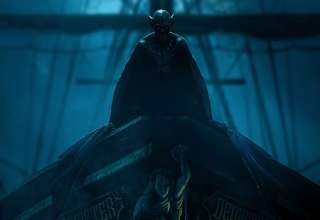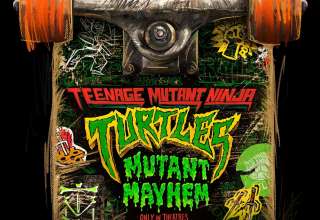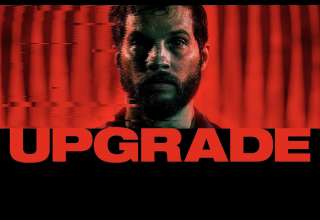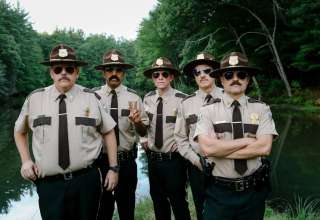Before sitting down with Maya Forbes and Mark Ruffalo, I knew that Infinitely Polar Bear was a lot of things. However, I found out that it was even more important information about it than I originally thought I would once I was able to learn about the intricate details of not just the making of the film, but also the heart that was beating behind it.
Cinematic Essential: It’s not the same thing, but do you think that with your past medical issues allowed you to relate to this character?
Mark Ruffalo: Probably. I hadn’t really thought about it like that, but I definitely understand what it is to be fearful and out of control of things that are way outside your view and are existential.
CE: What made you want to finally share this story?
Maya Forbes: I think when my two daughters I like personal stories like a movie like Squid and a Whale. When I saw it I was like “I love this kind of movie, so why am I not writing this kind of movie?” Then when my daughters got to be about the age that I was when my father had his really big breakdown that changed our lives, in seeing these two little girls and what it was like taking care of them, I was sort of catapulted in my memories. And one thing that was really notable for me is that that culture that my girls are growing up in is that parents are getting a lot of fear pushed toward them. It’s like everything is going to crush your children, they can’t go outside alone, they can’t do anything. It’s like fear is lurking all around and kids need to be protected constantly. And in writing it, I was sort of revisiting this idea that kids are actually quite resilient and are quite capable. Looking at some t=of the gifts I received from that hard period of my life, I felt that I had grown a lot and become a more self-reliant person, I had become a compassionate person, I became a person who was interested in people and things that they do. So the hard time had made me into who I am today and I felt like I would like to write a movie where people reconnect with or reevaluate their past and your own memories and reflect on your families and what made you who you are.
CE: With this being about your life (Forbes) as a child and you (Ruffalo) playing her father, did you feel as if you were taking creative risks?
Forbes: I felt that I had avoided writing something that I was powerfully, emotionally connected to. I like the work that I do in Hollywood, but writing Monsters vs. Aliens is much less risky than writing something personal about people you love. In terms of directing, I was always telling my daughters to be bold and try to be the boss, but I felt like why am I not doing this? I’m telling my daughters to do it, and I have to be a good parent and show them. I can’t keep saying it if I’m not going to try it. So it was definitely leaping off into a place where I was taking these emotional risks and the risk offending everybody I know, of upsetting people and making a terrible film about an issue I feel very strongly about that I want to humanize this issue and show that when you have a bipolar member of your family, it becomes a family issue. Everyone is involved in this.
CE: How did your family receive the news when you said you wanted to write about this?
Forbes: My family was very understanding. They’re used to me writing about things that are personal and outside of Hollywood things. My father died in 1998, but my mother, who started out in the theater before she went on and got her MBA and started to work in finance, she saw it as my story and embraced it.
CE: What about you (Ruffalo) playing her father? Any pressure?
Ruffalo: I think it could have been al lot worse if Maya wasn’t so charming, smart and talented and equanimical as far as how she saw her father as a young girl. When I think of creative risks, I guess my job is to be as honest as I possibly could to her dad and who he was. That’s what I knew Maya was asking of me. So the risk was the easy part, because the further I played from myself, the riskier it was, but that’s exactly what she was asking of me. So the risk all of a sudden wasn’t so much of a risk in our relationship, but more of would people buy me in this part and would this bipolar stuff work. There are people who are bipolar, suffer from depression and have mental illness in my family, so I felt like I knew that part, but what was more difficult for me was the blue blood Bostonian. Maya’s family came over in the Mayflower a couple hundred years ago and my family basically rode a boat here like four years ago. That part was really different for me.
Forbes: To that, the great thing that happened was that Mark started to tell me things that was true about my father. There’s a scene where he picks up Zoe Saldana at the bus station. He’s like “I’m not sitting in the car watching her come towards us; Cam would never sit in the car. He’s a gentleman, he’s gonna get out of the car.” And I’m like “You did it! You are correct!” Because my father, he would always bring flowers, he was so romantic. I was probably thinking of the day, but he (Ruffalo) was thinking of the character, and he bested me.
Ruffalo: No, I didn’t.
Forbes: You assisted me.
CE: Did you guys have any disagreements on set?
Ruffalo: We did have one disagreement in a scene. She comes over and says “I think it’s great…” I said “Yeah, but?” She said “I think you need a cigarette.” And I was like “Maya, I had a cigarette in the last scene and the scene before that.” And she says “I know, but it’s right.”
CE: What is it that you find difficult about playing a Boston character?
Ruffalo: The blue collar part of Boston I feel very comfortable with. It’s the blue blood part that I don’t… Other than Maya and several generations away, I haven’t really come into contact with them. I didn’t go to college – I’m not proud to say that – so I never had that kind of preparatory or even scholastic or collegiate kind of influence. It was so far from what I knew. And that’s only because I didn’t come into contact with it. If spent a little time with it, I could pretty much pick it up quickly. I’m a pretty good mimic that way. That works well for me as an actor. But really it’s just a matter of not having any contact with it in any way that I could soak it up. It’s a whole way of looking at the world that is very alien to me. There’s a lot weird rules and this kind of seeing the world through a filtered glass that I just didn’t understand. Only looking “up” that I could understand, but couldn’t understand the looking “down” part. I think Cam, funny enough, he could play in that. He could go from changing to the oil in a broken down car in one moment, and then walk into a very posh restaurant and put on his bow tie while having and argument in another. That’s what I thought was really exciting. Cam was somebody that didn’t really feel comfortable in that world and put a lot of pressure on him. I would even say that it was triggering to him in a lot of ways.
Forbes: Yes. He knows my father better than me.
CE: Infinitely Polar Bear is unique in terms of most of the things that you take a look at. What allowed you to keep it honest and authentic?
Forbes: I guess just relying on my childhood and the truth. I was trying to tell the truth and I wanted to put all these things in because those are all issues that families deal with. My mother’s Black and I don’t look Black, and I wanted to show how when you’re a little kid, you don’t think about it, but when you get older, the world tells you it matters and you wrestle with that. Especially when the mom has gone away, there was something very poignant to me in that the daughter is wondering “how much am I identifying with my mother and how much am I identifying with my father? What is the mother giving up in terms of the connection with her daughter?” It’s part of life, so I wanted these things to be part of the life of this movie without becoming an issue movie. For me, I wanted to tell a family movie and all the different things that people struggle within that family.
Ruffalo: Something like three percent of Americans are bipolar. And that’s like supposedly a very low estimate.
Forbes: Because people aren’t diagnosed.
Ruffalo: That’s based on the people who are diagnosed. That makes three out of every a hundred people. Which means there’s a good chance that anyone of us can come across a person with bipolar disorder. Do we necessarily know they’re bipolar? No, because it’s not like a light switch that turns on and off, and they’re not acting zany. It’s kind of an intensification of already certain qualities and they’re who they are. So it really became the most important thing was to find out who Cam was and just try to stay as honest to that as possible. I knew the stories. It was written in the script how far he would go in one way or another, so I could take it that far out, but always have it tapered to some reality even if I wanted to go farther as a performer because it would be more fun to do or it would be more flashy to do at times, it just wasn’t honest. I think that’s what we set out to do. It’s just to keep it honest and the rest would take care of itself.
CE: What made you want to tell your story in this way? Some may feel it’s too positive for a film about mental illness.
Forbes: I think what’s important to me is the story that you tell about your life. You get to tell your version. And you can tell whatever version you want. You can tell the bad version or you can tell the good version, right? I didn’t want to tell the good version, but I didn’t want to tell the real version which is that I’m grateful for my childhood, I love my parents. We went through some really hard times. My father was a very difficult person, very flawed, also a wonderful father. So how do you take all of those things and make that into a story? It’s how are you going to look at your life. Are you going to look at it in a way that makes you grateful for who you are and are excited to move forward or you can look at it in a different way. I feel like my sister and I, we both got a lot out of our childhood and that my father had a lot to do with I do for a living and what my sister does for a living loving. But even more important than that, I think we have relationships in our lives. That’s the real measure of my childhood. I have a lot of people in my life that I love.
CE: We spoke about how you wanted your father to be portrayed, but what about your mother?
Forbes: I wanted her not to be crushed by these circumstances. She is a fighter. I guess I would say I get some of that from her and she’s an optimist. And these are really hard times for her. Now that I have three children of my own, my feelings about my mother have changed, because I recognize how hard it was for her to come in every weekend from New York. With work and all the stuff she was doing, she came, she came with a good attitude and she didn’t come complaining about her situation. She came and participated in the family, then she left and went back to work. It was really hard, but she always maintained this positive attitude. Both of my parents were feminists. My father always wanted me to fight with everybody. Obviously, he was a combative person himself, but he encouraged us to get out there and fight. As did my mother in her own much more charming way. The most important thing to me was that she was shown as a person with a lot of spirit. That’s what drew me to Zoe Saldana. She’s so strong and she has a great smile and a great laugh.
CE: How do you feel about how bipolar disorder is portrayed?
Forbes: It’s a tricky thing. I don’t like crazy when it’s kind of cute. I think it’s funny when Cam is so annoying. It’s a hard thing to portray. It’s a tricky thing to get right, so I just tried to draw from my own experience. It’s not just my father, I have more bipolar people in my family so I got to see it as a little kid and as an adult. It’s definitely different as an adult. As a kid it seems very annoying. I mean it’s sad too when he was hospitalized or very heavily medicated. But when someone is getting manic, you don’t know if they’re just in a great mood and having a great day and you don’t want to come down on them and say “you’re crazy, right now.” It’s a really delicate thing, because it’s confusing. It’s confusing to know where the line is for people. I think that’s what everybody was always wrestling with with my father. Is he just in a good space or is he heading somewhere more disturbing?
CE: This was filmed in Providence, even though it’s supposed to be based in Cambridge.
Forbes: Well, I really couldn’t shoot in Boston because it was expensive. We were very Boston centric, but Providence looked very much like Cambridge of that era. It looked more like it than anyplace I could find here. it was evocative of that era and they have very good food in Providence. They have good food here too, but it’s good in Providence.
Ruffalo: You can walk to every restaurant in Providence.
CE: Do you prefer making large films or smaller ones like this?
Ruffalo: I feel like you’re doing the same thing whether it’s a big movie or a small movie. With a little movie, the energy stays compact.
Forbes: You have to keep moving. You can’t get bogged down.
Ruffalo: I like the familial, intense, really vulnerable feeling of making small movies. It’s just that I like that kind of experience more. But the creature comforts of a big movie, there’s a lot of pros in that world too that are nice to move between.
Forbes: For years, I tried to write what I though what would work in Hollywood. I wasn’t trying to put out my specific and unique vision. I could get jobs and work in the studio system, but I wasn’t getting forward with my own personal stuff. So I think you should try and write something for you, then you share it with some people and get some feedback, because you’re not ever gonna write it just for you. You want to be open to the creative process with other people. But start with that and be specific to your unique vision and what you want to see, because there is an audience for that. As for directing, the great thing about directing is that there really aren’t rules. When you’re running a set, you get to make it how you want it. So the big thing is If you want to make a movie, put that as your goal and do whatever you have to do to get to that and don’t think about anything else. I didn’t think about what it’s going to be like if I cast my daughter. It all works itself out. Just keep going for the goal and you’ll figure it out as you go.
